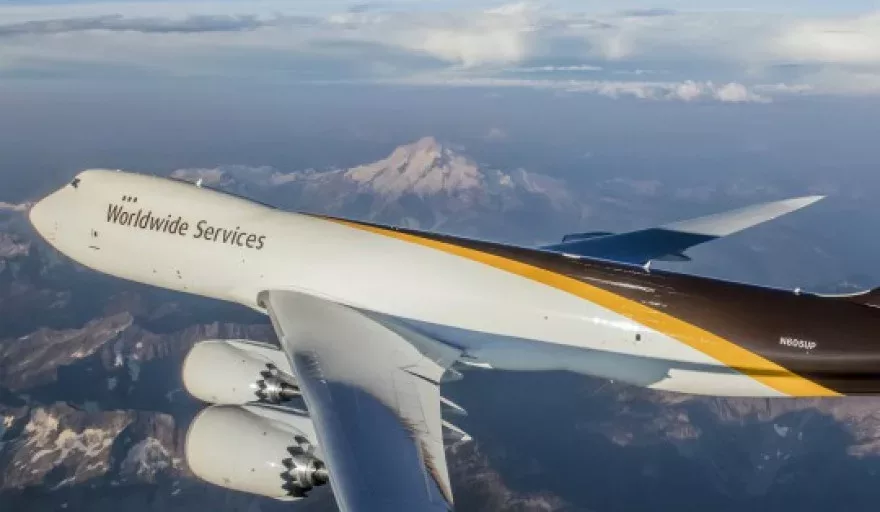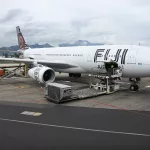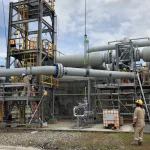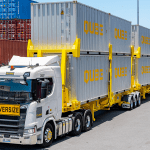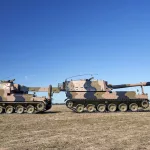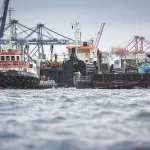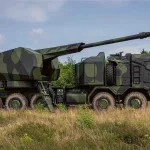UPS has announced that it intends to purchase an additional 14 Boeing 747-8F Freighters and four new Boeing 767 aircraft as it looks to compound its already market-leading supply chain network around the world.
Specifically targeting Asia, Europe and the US, the 14 new cargo jets and additional four 767s will compound the Company’s international air shipment portfolio; providing additional capacity in response to accelerating demand.
All of the new aircraft will be added to the existing fleet as opposed to replacing existing aircraft, highlighting an emphasis on growth rather than upgrades, and will be delivered on an expedited schedule. The new arrivals will complement UPS’ 2016 order of an initial 14 Boeing 747-8 Freighters; the resultant 32 set to be delivered by the end of 2022, adding a total of more than nine million pounds to the Company’s cargo capacity.
UPS’s global airline network already includes more than 500 owned and leased aircraft, having also received three new 747-8 Freighters recently in 2017.
“Our intra-US next-day and deferred air shipments are expanding to record levels, and UPS’s international segment has produced four consecutive quarters of double-digit export shipment growth,” said David Abney, UPS chairman and CEO. “To support this strong customer demand, we continue to invest in additional air capacity, providing the critical link our customers need to markets around the world.”
In addition to growing customer demand for express services, recent US tax reform legislation is enabling UPS to utilise tax savings to significantly increase capital investments and to make them earlier than previously planned.
“As we celebrate the 30th anniversary of UPS Airlines today, we are seeing unprecedented demand for our air products,” said UPS Airlines President, Brendan Canavan. “The new Freighters will allow us to continue upsizing aircraft on routes and will create a cascading effect that will boost capacity on regional routes around the world.”
UPS 747-8 Freighter specs:
Length – 250ft
Width -224ft
Height – 64ft
Max payload – 307,600lbs
Cruising speed – 564mph
Range – 4,200 nautical miles
Advanced flight deck technology:
- Latest generation flight management computer
- Electronic checklists
- Airport moving map
- Integrated approach navigation
- Global positioning landing system autoland
- Vertical situation display
- Onboard network system
- Multi-function displays
POWER AND EFFICIENCY
For 30 years, UPS has cemented its status as a global leader in the logistics domain, offering the broadest range of solutions in the market across package transportation, freight services, international trade facilitation, supply chain technologies, and B2B connectivity.
Serving more than 220 countries and territories worldwide, strategic relationships such as the one enjoyed with a similarly global heavyweight like Boeing are critical.
In this case, UPS knows what it is receiving of course, and that is a 747-8F Freighter complete with a series of functional differentiators that will keep UPS ahead of the industry curve from a crucial air shipment perspective.
First and foremost, the deal represents a strategic investment as – combined with infrastructure and technology – the 747-8F forms part of UPS’s companywide, long-term strategy to invest in profitable growth. The jet’s second advantage comes in the form of sustainability, as the Company explains: “The 747-8F’s new wing design and GEnx-2B engines reduces fuel consumption and carbon emissions by 16 percent. The -8F operates 52 percent below ICAO’s nitrous oxide limits. And it is 30 percent quieter than both the 747-400 and the MD-11.”
In regards to said engine; “each supplies more than 66,500 pounds of thrust and is quieter, consumes less fuel, and releases less greenhouse gas than any other 747 engine”, UPS continues.
From a commonality point of view, pilots of the 747-400 will be type-rated to fly the -8F after completing a short Differences course, while UPS will similarly benefit from economies of scale in terms of maintenance and ground handling as a consequence, too.
Finally, and perhaps most importantly for UPS as a cargo capacity groundbreaker, the new aircraft will facilitate greater capacities than ever before.
“The 747-8F will be the largest plane UPS has ever flown, with 16 percent more cargo capacity than our current largest, the 747-400,” the Company affirms.
Broken down, the statistics showcase 46 shipping containers; a capacity of 307,600 pounds (or 30,000 packages); and unparalleled safety compliance, reliability and environmental certifications. Meanwhile, the additional 767 aircraft will present 132,000 extra pounds of capacity as well as 31 air containers and a nautical mile range of around 3,000.
“UPS has clearly tapped into the power and efficiency [that] the 747-8 Freighter brings to the market,” said Boeing Commercial Airplanes President and CEO, Kevin McAllister. “We’re impressed with how UPS is leveraging the airplane in its operations and excited to see them bring additional 767s into their fleet.”

